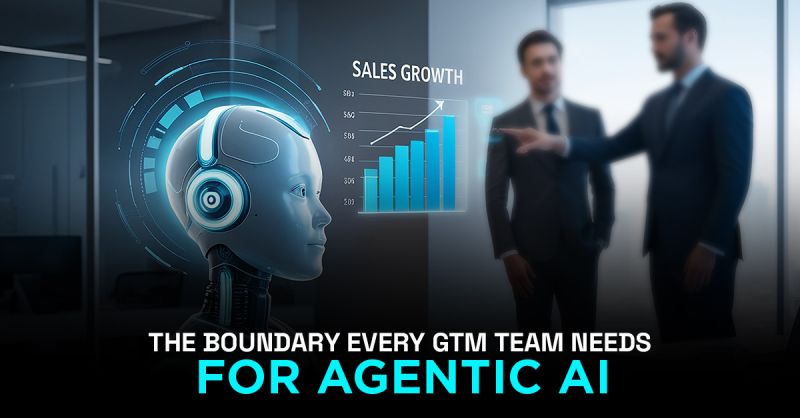Last month, I watched a sales rep lose a deal because he trusted an “AI teammate” a little too much.
The prospect had asked a simple question about compliance.
Instead of waiting for the rep, the AI jumped in, generated an impressive-sounding answer…
and confidently said something that wasn’t even true for our product.
The room went silent.
Not because the AI made a mistake.
But because the rep froze. He didn’t know where the AI’s job ended and his began.
That’s when it became painfully clear:
Agentic AI isn’t the problem. Undefined boundaries are.
And as more companies rush to add “AI employees” to their GTM teams, this distinction matters more than ever.
Here’s the line that separates useful from dangerous.
What AI should do in pre-sales
1. Prep like an analyst: Condense discovery notes, highlight priorities, & surface red flags before the call.
2. Coach silently: Suggest next questions, surface product proof points, and whisper insights in the rep’s sidebar… not in front of the customer.
3. Generate tailored materials: Draft proposals, summarize calls, build first-pass case studies, and personalize follow-ups.
4. Automate grunt work: Data entry, CRM hygiene, sequence updates and call tagging
What AI should never do
1. Own the customer relationship: Trust is built human-to-human. AI can help, but it can’t be the face of your promise.
2. Answer compliance, pricing, roadmap, or risk-related questions on its own
3. Negotiate: AI can prep arguments. Humans negotiate outcomes.
4. Guess: A confident hallucination is worse than silence.
The rule I now give every GTM team: AI handles the inputs and insights. Humans handle the judgment and promises.
If you blur that line, AI becomes a liability.
If you respect it, AI becomes the highest-leverage teammate your GTM team has ever had.
And your reps stop fearing automation… and start winning more deals.

